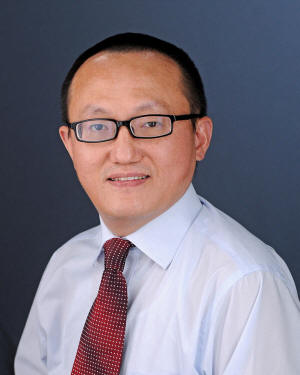Kansas researcher wins reversal of conviction in Trump-era China probe
 Send a link to a friend
Send a link to a friend
 [July 12, 2024]
By Nate Raymond [July 12, 2024]
By Nate Raymond
(Reuters) -A U.S. appeals court on Thursday tossed the conviction of a
former University of Kansas professor for making a false statement
related to work he was doing in China, marking a new setback for the
Department of Justice in a Trump administration-era crackdown on Chinese
influence within American academia.
The Denver-based 10th U.S. Circuit Court of Appeals on a 2-1 vote held
that prosecutors offered insufficient evidence at trial to support the
sole remaining count on which jurors convicted Feng "Franklin" Tao in
2022.
Peter Zeidenberg, Tao's attorney, in a statement called the case a
misguided prosecution that authorities pursued despite having no
evidence that Tao engaged in espionage. He said the case had virtually
bankrupted Tao's family and led to his firing.
"Dr. Tao is grateful that this long nightmare is finally over,"
Zeidenberg said.
The Justice Department declined to comment.
Tao was among about two dozen academics who were charged as part of the
"China Initiative," which launched in 2018 during Republican former
President Donald Trump's administration and aimed to counter suspected
Chinese economic espionage and research theft.
The Justice Department under Democratic President Joe Biden in 2022
ended the China Initiative following several failed prosecutions and
criticism that it chilled research and fueled bias against Asians,
although the department said it would continue pursuing cases over
national security threats posed by China.
Prosecutors said Tao, who worked on renewable energy projects, concealed
his affiliation with Fuzhou University in China from the University of
Kansas and two federal agencies that provided grant funding for his
research.

[to top of second column]
|

Feng "Franklin" Tao, a professor at the University of Kansas, poses
in this undated photo. University of Kansas/Kelsey Kimberlin/Handout
via REUTERS

Tao was indicted in 2019. A jury in April 2022 convicted him of four
of the eight counts against him, but a trial judge later overturned
three wire fraud convictions, citing a lack of evidence, and
sentenced him to time served.
That left a single conviction for making a false statement by
failing to disclose his affiliation with Fuzhou University on a form
submitted to the University of Kansas. Prosecutors said that
information was relevant to the funding decisions of the agencies,
the U.S. Department of Energy and the National Science Foundation.
But U.S. Circuit Judge Nancy Moritz, writing for the majority, said
Tao's statement was incapable of influencing an actual funding
decision. She said that was because neither agency had any proposals
before them to consider from Tao when he made his statement. Moritz,
writing for the majority, said that meant prosecutors failed to
prove the statement was material.
(Reporting by Nate Raymond in Boston; Editing by Matthew Lewis and
Leslie Adler)
[© 2024 Thomson Reuters. All rights
reserved.]This material
may not be published, broadcast, rewritten or redistributed.
Thompson Reuters is solely responsible for this content. |